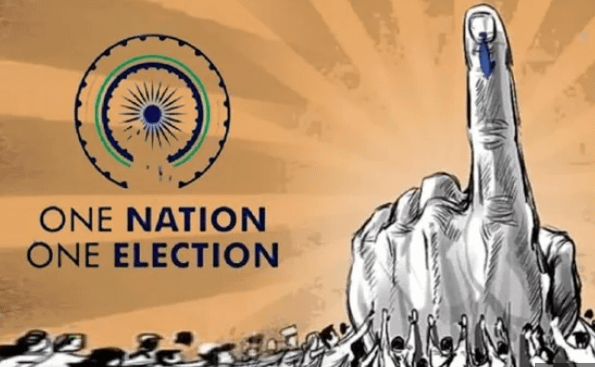The Union Cabinet, under Prime Minister Narendra Modi, has recently approved the “One Nation, One Election” Bill, which aims to synchronize elections for the Lok Sabha, state assemblies, and local bodies in a single year. The proposal has been objective for the ruling BJP, featured in their 2014 and 2019 manifestos. The bill will be introduced during the ongoing Winter Session of Parliament.
Objectives of the Bill
The primary goal of the bill is to hold simultaneous elections across various levels of government. This would potentially streamline the electoral process and reduce the frequency of elections. The government intends to refer the bill to a Joint Parliamentary Committee for further examination.
A panel led by former President Ram Nath Kovind has proposed a phased approach. It suggests starting with simultaneous Lok Sabha and assembly elections, followed by local body elections within a hundred days. The panel also recommends necessary constitutional amendments to manage scenarios like early assembly dissolution or hung assemblies.
Constitutional Amendments Required
Implementing this plan necessitates amending at least five articles of the Constitution. This process requires approval from half of India’s states, denoting the complexity of the proposal.
Support for Simultaneous Elections
Proponents of the bill argue that it would lower election costs, reduce voter fatigue, and enhance voter turnout. They believe that synchronising elections would minimise disruptions in governance and allow for more efficient policy implementation.
Opposition Concerns
Critics argue that the proposal poses risks to democracy. They contend that it may marginalise regional parties and centralise political discourse around national issues, neglecting local concerns. Leaders from various parties, including Tamil Nadu’s Chief Minister MK Stalin, have labelled the proposal as “anti-democratic.”
India previously conducted simultaneous Lok Sabha and state assembly elections until 1967. The current situation sees Lok Sabha elections aligning with assembly polls in only four states. The proposed changes would require extensive constitutional revisions and may encounter opposition in Parliament.
GKToday Facts for Exams:
- Joint Parliamentary Committee (JPC) The JPC is a parliamentary body in India. It consists of members from both houses. It examines specific issues and recommends legislative changes.
- Model Code of Conduct (MCC) The MCC is a set of guidelines for political parties. It aims to ensure free and fair elections. It is enforced during election periods to maintain electoral integrity.

Leave a Reply